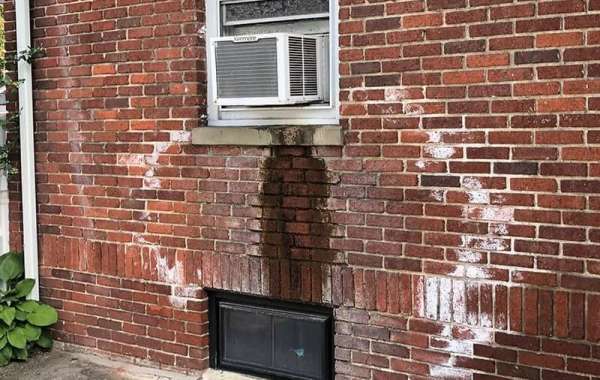As the real estate market in New Jersey continues to evolve, so too does the process of home inspections. Home inspections are a vital part of the home buying process, providing buyers with critical information about the property they are considering. In recent years, technological advancements and changing consumer expectations have led to innovations in the field of home inspections. This article will explore the future of home inspections in New Jersey, highlighting key trends and innovations that are shaping the industry.
The Role of Technology in Home Inspections
One of the most significant trends in home inspections is the integration of technology into the process. Modern home inspectors are now utilizing advanced tools like thermal imaging cameras, drones, and moisture meters to provide detailed assessments of properties. These tools allow inspectors to identify hidden issues that may not be visible to the naked eye, such as heat loss in insulation or water damage in walls. According to a report by the National Association of Realtors, 87% of home buyers consider a home inspection essential, highlighting the importance of thorough inspections backed by technology.
3D Imaging and Virtual Tours
Another innovation transforming home inspections is the use of 3D imaging and virtual tours. Companies like Matterport have introduced technology that allows inspectors to create detailed 3D models of properties. These models can be viewed remotely, providing potential buyers with an immersive experience of the home before making a purchase decision. This technology not only enhances the inspection process but also serves as a valuable marketing tool for real estate agents. Moreover, it helps buyers visualize the space and understand the layout, giving them a better sense of the home's condition.
Environmental Considerations
As environmental concerns continue to grow, home inspections are increasingly incorporating sustainability assessments. In New Jersey, where green building practices are becoming more prevalent, inspectors are now focusing on energy efficiency, indoor air quality, and water conservation. The New Jersey Department of Environmental Protection has initiated programs to promote energy-efficient home upgrades, which are often evaluated during inspections. By addressing these environmental factors, home inspectors can help homeowners make informed decisions about energy-efficient upgrades that could save them money in the long run.
Remote Inspections and Virtual Consultations
The COVID-19 pandemic has accelerated the adoption of remote inspections and virtual consultations. Many inspectors in New Jersey now offer virtual consultations, allowing clients to discuss their concerns and receive guidance without the need for an in-person meeting. Remote inspections, conducted via video conferencing tools, have become a viable option for buyers who may be unable to attend an inspection in person. This trend is likely to continue as consumers become more comfortable with technology and seek convenient alternatives to traditional inspection methods.
Increased Emphasis on Training and Certification
As the home inspection industry evolves, there is a growing emphasis on training and certification for inspectors. Professional organizations, such as the American Society of Home Inspectors (ASHI), are raising the bar for standards and best practices in the industry. In New Jersey, inspectors are required to complete continuing education courses to maintain their licenses, which ensures they stay updated on the latest trends and technologies. This emphasis on education not only benefits inspectors but also enhances the quality of inspections, providing buyers with greater assurance regarding their investment.
Consumer Demand for Transparency
Today's home buyers are more informed and discerning than ever before. They demand transparency and detailed information about the properties they are considering. As a result, home inspectors are adapting their reporting practices to meet these expectations. Comprehensive inspection reports that include high-quality images, detailed descriptions of issues, and recommendations for repairs are becoming the norm. Many inspectors are leveraging software solutions that streamline the reporting process, allowing them to deliver professional, easy-to-understand reports to clients quickly.
Innovative Pricing Models
The traditional pricing model for home inspections is also undergoing change. As competition increases in the New Jersey market, inspectors are exploring innovative pricing structures that cater to consumer preferences. Some inspectors are offering flat-rate pricing, while others provide tiered packages based on the level of service provided. This flexibility allows buyers to choose an inspection package that fits their budget while ensuring they receive the necessary information about the property. This trend reflects a broader shift toward customer-centric services in the real estate industry.
Integration with Real Estate Transactions
Home inspections are increasingly becoming integrated with the overall real estate transaction process. Real estate agents are now collaborating more closely with inspectors to ensure a seamless experience for buyers. Some agents are even recommending inspectors who leverage technology and provide detailed reports that can be quickly shared with all parties involved in the transaction. This integration not only enhances communication but also speeds up the home buying process, making it more efficient for everyone involved.
The Impact of Artificial Intelligence
Artificial intelligence (AI) is starting to play a role in home inspections, with applications that can analyze inspection data and identify patterns. For example, AI algorithms can sift through historical inspection data and provide insights into common issues found in similar properties. This capability can help inspectors prioritize areas of concern during inspections and offer more informed recommendations to buyers. As AI technology continues to advance, it is likely to become an essential tool for inspectors, enhancing their ability to provide thorough and accurate assessments.
Conclusion: Embracing the Future
The future of home inspectors NJ is poised for transformation as technology, consumer expectations, and industry standards evolve. From the use of advanced tools and virtual consultations to a greater emphasis on sustainability and training, the home inspection process is becoming more efficient, transparent, and consumer-centric. As these trends continue to unfold, home buyers can expect a more informed and streamlined experience when navigating the complexities of purchasing a home. By embracing innovation and adapting to changing demands, the home inspection industry in New Jersey is well-positioned for continued growth and success.




